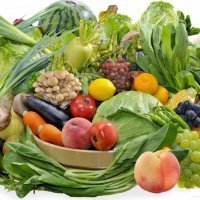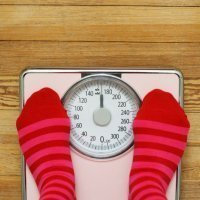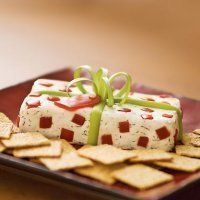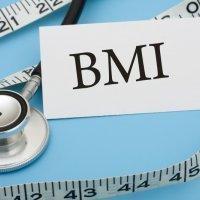The 9 Most Addictive Foods And How To Stop Eating Them
Researchers from the University of Michigan conducted a study which proved that some foods produce psychological dependence.
Do you believe that food has addicting property like alcohol or drugs? In fact, researchers from the University of Michigan conducted a study which proved that some foods produce psychological dependence. The study was carried out in two independent groups (120 and 398 participants, respectively), and in both groups similar results were found – 92% of the participants admitted they would like to break a habit of eating certain products, but have problems with quitting.
The researchers found that processed products are more addicting than unprocessed ones since 9 of the most addictive foods from a list of 35 products belong to this category. This is easy to explain: processed products have high fat content and high glycemic index (meaning sugar is absorbed into the blood soon after the food enters the stomach). In other words, if there are a lot of sugar and simple carbohydrates in a product, then the product has an effect of a real drug!
Pizza

Pizza topped the list of addictive food and this is quite explainable: due to glycemic load of 22 and 10 grams of fat in each slice of pizza, it has a killing combination of increase in blood sugar level and sense of pleasure caused by fat. Flour in the dough, cheese, oil, mayo, ketchup, processed meat are the ingredients that make pizza a high calorie product (the number of calories in a piece of pizza reaches 300-360 depending on the choice of ingredients while daily demand is around 2000 calories).
Chocolate
We can say that chocolate is super addictive since it contains both caffeine and fast carbohydrates.
A bar of milk chocolate (which is considered the most harmful) has glycemic load of 14 and 13 grams of fat. We can say that chocolate is super addictive since it contains both caffeine and fast carbohydrates, which are responsible for the feeling of pleasure, stimulated by caffeine and glucose in some brain areas. But as soon as the activity level in the brain decreases you get a feeling depression and ... a desire to lift the spirits with the help of another bar of chocolate. And one bar brings more than 200 calories!
Chips

Glycolic load of potato chips is 12 and 100 grams of chips contains 30 grams of fat. The most manufacturers add monosodium glutamate as a flavor enhancer and a variety of artificial flavorings, giving the chips taste of fish, sausages, fried onions, etc. Also in the production of chips processed potato flour or potato flakes are often used instead of natural potato. Chips are fried in a large quantity of oil which contains carcinogens. Consumption of chips contributes to overeating, development of addictive behavior and hyperactivity. Thus, according to the journal Plos One, scientists found that substances contained in chips suppress the brain areas normally associated with sleep while stimulate the areas associated with the body movement causing hyperactive behavior.
Cookies
It turned out that glucose in the cookies activates more neurons in the brain than such drugs as cocaine or morphine.
Having glycolic load of 7 cookies may seem not as addictive as the other foods on the list. But recently, scientists from Connecticut College found that rats eating "Oreo" chocolate cookies with cream have higher activity level in the brain areas associated with pleasure than after a drug injection. It turned out that glucose in the cookies activates more neurons in the brain than such drugs as cocaine or morphine.
Ice cream

Glycolic load is 14 and fat content is 15 grams – this explains why we like ice cream that much. Scientists of the Oregon Research Institute (USA) say that this dainty can be as addictive as drugs, too. The study published in the American Journal of Clinical Nutrition showed that excessive consumption of food with high level of fat and sugar, such as ice cream, prevents transferring of pleasure signals with the help of which the brain regulates the amount of food consumed.
French fries
This product is addictive due to a heavy stimulating effect on the taste buds since French fries contain flavoring agents and monosodium glutamate as a taste enhancing products.
This product is addictive due to a heavy stimulating effect on the taste buds since French fries contain flavoring agents and monosodium glutamate as a taste enhancing products. The body gets used to a certain level of stimulation and all natural products which don’t contain flavorings seem to have less pronounced flavor. As a result, you want to achieve the level of stimulation of the taste buds that you felt earlier – that is to eat fries again and again. Add to this the following numbers: 21 of glycolic load and 18 grams of fat.
Cheeseburger

When it comes to cheeseburger, the combination of fat and salt in a higher concentration than in natural products lead to a high risk of addiction. Cheeseburger shows 17 of glycolic load and 28 grams of fat with the caloric value up to 300 calories for a medium-sized one. Note, that due to cheese the caloric value of cheeseburger is higher than the caloric value of hamburger not even speaking about the addicting property of cheese itself.
Soda
Frequent consumption of soda increases the risk of obesity by several times since this product contains an incredible dose of sugar.
According to 2012 Gallup poll almost half of the USA population drink soda everyday though in recent years more and more people try to avoid daily consumption of the drink. Soda contains no fat, but has strong glycemic load – 16. Frequent consumption of soda increases the risk of obesity by several times since this product contains an incredible dose of sugar. Besides, many soft drinks contain a certain amount of caffeine. Thus, Coca-Cola's addictive property can be compared with that of coffee while soda can make more harm to your health because of higher sugar content.
Cake

American researchers from the State University of San Diego found that trans-fatty acids, which are commonly found in the processed products like cakes, affect our ability to control emotions. A study of 5 000 people showed that those participants, who consume more foods with trans fats, have difficulty with control over their emotions and they were less able to regulate their mood. But cakes contain not only hydrogenated fats, but also a lot of sugar and that’s why their glycemic load makes up 24 and fat content reaches 10 grams.
How to get unhooked
You can get unhooked if you keep your brain busy with something else, for example meditation or exercise.
According to Dr. Pamela Peeke from the University of Maryland, you can get unhooked if you keep your brain busy with something else, for example meditation or exercise. Do you know that running promotes serotonin production? Runner's high is a proven fact and many fans of jogging experience feeling of euphoria after a run – so you should try to join them!
The addictive products should be replaced by something similar but useful like fruit cocktail instead of a milkshake. If you eat enough protein and complex carbohydrates providing a steady blood sugar level, it will be easier for you to overcome sugar dependence. Besides, you should stop eating products with flavorings to recover the sensitivity of your taste buds. After some time you will begin to perceive natural taste of products and this will reduce cravings for harmful foods.
Sources:
http://www.ns.umich.edu/new/releases/22693-highly-processed-foods-linked-to-addictive-eating
http://www.dailymail.co.uk/health/article-2305983/Crisps-Eating-pack-day-like-drinking-FIVE-LITRES-cooking-oil-The-frightening-truth-crisps.html
http://www.nydailynews.com/life-style/health/oreos-addictive-cocaine-scientists-article-1.1487335#ixzz2huKV19kz
http://well.blogs.nytimes.com/2012/09/20/craving-an-ice-cream-fix/?ref=magazine&_r=2
http://www.gallup.com/poll/156116/nearly-half-americans-drink-soda-daily.aspx
https://health.ucsd.edu/news/releases/Pages/2015-06-17-trans-fats-and-memory.aspx
http://www.drpeeke.com/web/page/700/sectionid/700/interior.asp









